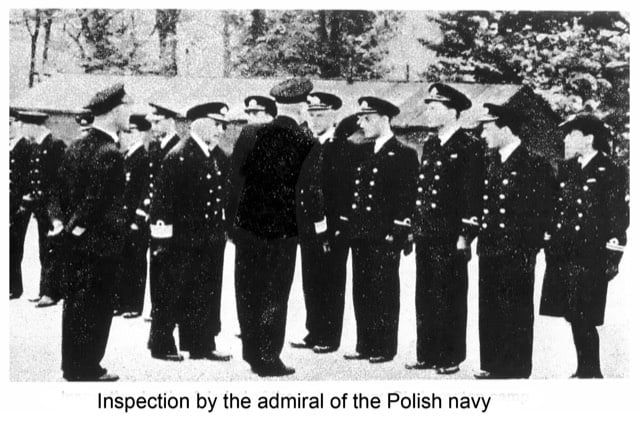Okehampton’s Polish Naval Camp and its servicemen will be remembered with the unveiling of a commemorative plaque 83 years to the day since Germany invaded Poland.
The ceremony, which will take place on September 1, will see the Mayor of Okehampton Bob Tolley unveil the plaque in Red Lion Yard and will also include a reception with refreshments and a guided tour of the remains of the original naval camp.
The plaque is the result of a petition to the town council by a group of Okehampton residents who unearthed the story of the camp and the role of Polish sailors in the war as part of a community heritage project which encouraged people to research the history of their town.
Okehampton resident and Polish-born Jolanta Wilson took part in the research and has now helped to organise the unveiling ceremony.
She said: ‘Some of the documents about the camp were in Polish and I helped to translate. It was a great privilege to be part of the research and I felt it was so important to share with the community.
‘I hope that this plaque will help, in a small way, to raise awareness of the significant achievement that all of the Polish forces played in assisting Britain and the Allies to win the Second World War and that it will ensure that they are remembered in future years. Polish servicemen fought with great distinction alongside the British and Allied navies, serving on board Polish and British ships.
‘It is a part of the history of Okehampton which should not be forgotten.’
In a sign of its importance to Britain’s Polish community, several children of the camp’s former sailors have confirmed they will be attending the event, with some travelling from as far afield as Scotland.
The Polish Naval Camp operated between 1944 and 1949 during which time most of the approximately 4,000 Polish saillors who worked with the British, trained in Okehampton.
Following the end of the Second World War the camp became a resettlement centre for those Polish servicemen unable to return to their home country.
Many stayed following the camp’s closure in 1949, opening businesses and societies in the town or in nearby cities such as Exeter and Plymouth.
Around 450 Polish navy personnel lost their lives in the conflict and many more were seriously wounded.





Comments
This article has no comments yet. Be the first to leave a comment.